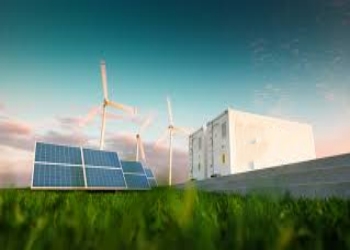Power Solar Inverter: Can It Power Your Home?
With the growing popularity of renewable energy, solar power generation has become a form of green energy pursued by many households. As the core equipment in the solar power generation system, the solar inverter converts the DC produced by solar panels into replacing current for home use. However, in many cases, people wonder: Can a solar inverter power a home?

Principles and functions of solar inverters
A solar inverter converts direct current into replacing current. It mainly consists of DC-AC converters, filters, transformers, etc. When solar panels produce DC power, the inverter converts it into AC power for home appliances. In addition, the inverter also has a series of protection functions, such as overload protection, short-circuit protection, etc., to ensure the safety of household electricity.

Power selection of solar inverter
When choosing a solar inverter, you need to select the right power based on your home's power needs and the specifications of your solar panels. Generally speaking, the power of the inverter should be greater than or equal to the daily electricity consumption of the home. For example, if a family's daily electricity consumption is 10 kilowatt hours, the selected inverter power should be above 1,000 watts. In addition, the inverter's management should also consider the possible future growth in the household's electricity demand.
Usage environment and efficiency of solar inverter
The environment in which a solar inverter is used significantly impacts its efficiency. Generally speaking, solar panels and inverters should be installed in a sunny, unobstructed place to ensure sufficient sunlight exposure. In addition, the casing of the inverter should be kept clean to prevent dust, dirt, etc., from affecting heat dissipation. At the same time, the working environment temperature of the inverter will also affect its efficiency. Too high or too low a temperature will reduce its performance.
Advantages and Disadvantages of Solar Inverters
Advantages: As a green and environmentally friendly energy conversion equipment, solar inverter has the following benefits:
Energy saving: Using solar energy to generate electricity can significantly decrease dependence on fossil fuels and reduce energy consumption and carbon emissions.
1) Environmental protection: Solar power generation is environmentally friendly and does not produce waste gas, wastewater and other pollutants.
2) Lower Electricity Bills: Solar power can significantly reduce a household's electricity bills.
3) Low maintenance costs: Solar power generation systems have lower maintenance costs and longer service life than traditional ones.
Disadvantages: Although solar inverters have many advantages, they also have some disadvantages:
1) High initial investment: The initial equity of a solar power generation system is relatively high and requires a certain amount of economic strength to afford it.
2) Affected by weather: The solar power system's energy will be influenced by the temperature, especially in rainy weather or insufficient sunlight.
3) Regular maintenance: Solar power systems require regular maintenance and inspections to function correctly.
4) Complex installation: The installation process of the solar power generation system is relatively complex and requires professionals to design and install it.
How do you choose a suitable solar inverter?
When choosing a solar inverter, you need to consider the following factors:
1) Power: Choose the appropriate management based on your home's power needs and consumption.
2) Efficiency: Choosing an inverter with high efficiency can maximize the use of solar power and improve energy conversion efficiency.
3) Stability: Choosing an inverter with stable performance and high reliability can ensure the safety and soundness of household electricity.
4) Compatibility: Choosing an inverter compatible with solar panels and home appliances ensures smooth use.
5) Brand and service: Choosing an inverter from a well-known brand and providing comprehensive after-sales service can ensure the reliability and safety of use.
Conclusion: Can solar inverters power homes?
To sum up, solar inverters are fully capable of powering a home. As long as you choose the suitable inverter and pay attention to the usage environment and methods, solar inverters can provide a stable, reliable, and environmentally friendly power supply for your home. At the same time, using solar power can reduce household electricity bills and achieve sustainable energy development. However, it should be noted that when selecting and using a solar power generation system, you should thoroughly consider its advantages and disadvantages and seek professional advice.
Supplier
PDDN Photoelectron Technology Co., Ltd. is one of the leading enterprises in the Home Accessory and Solar Power System, which is fully involved in developing the power industry, intelligent operation and maintenance management of power plants, solar panels, and related solar products manufacturing. We will be committed to providing users with high-quality, efficient products and considerate service.
It accepts payment via Credit Card, T/T, West Union, and Paypal. PDDN will ship the goods to customers overseas through FedEx, DHL, by sea, or by air. If you want a high-quality power solar inverter, please send us inquiries; we will be here to help you.
